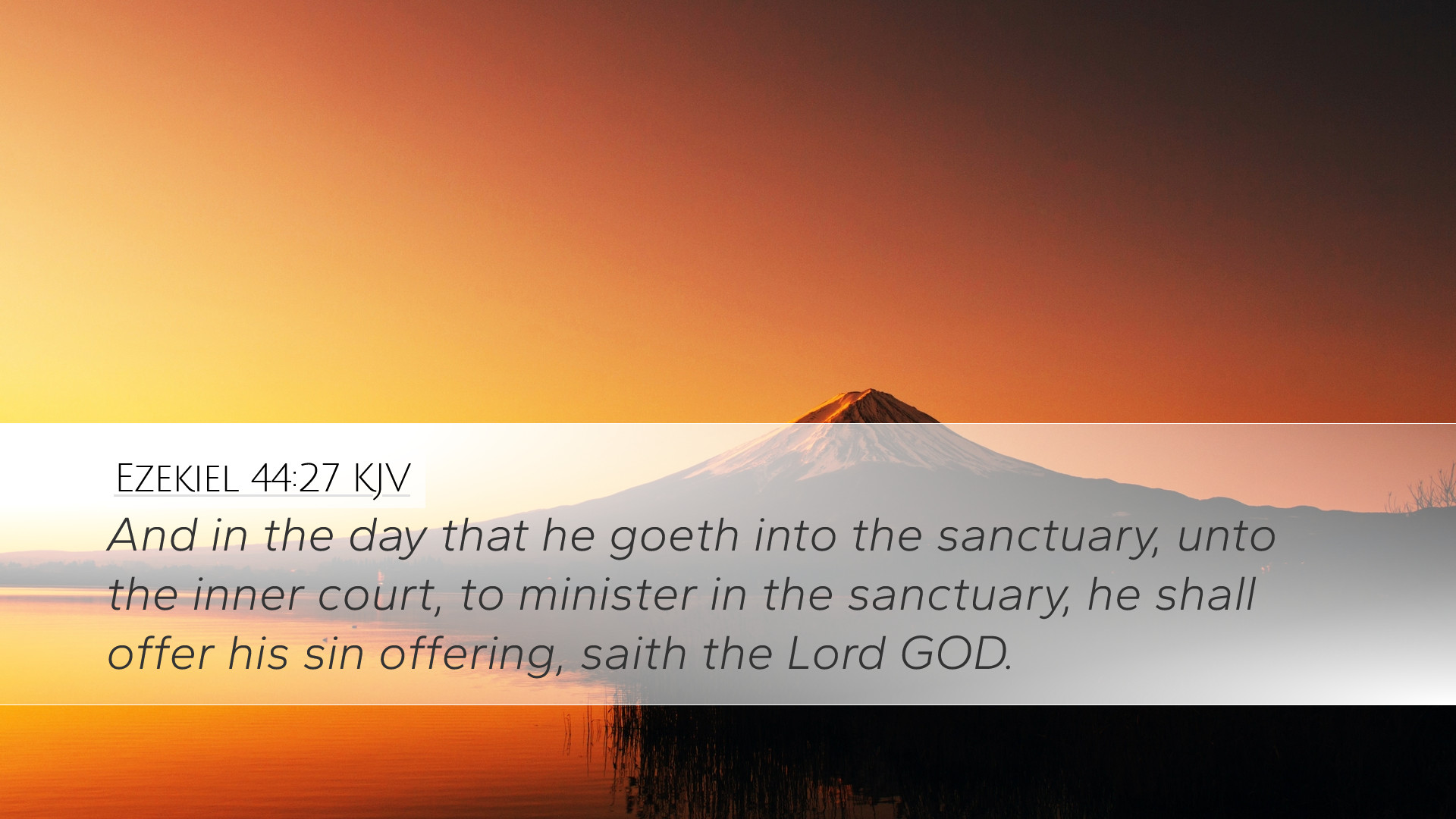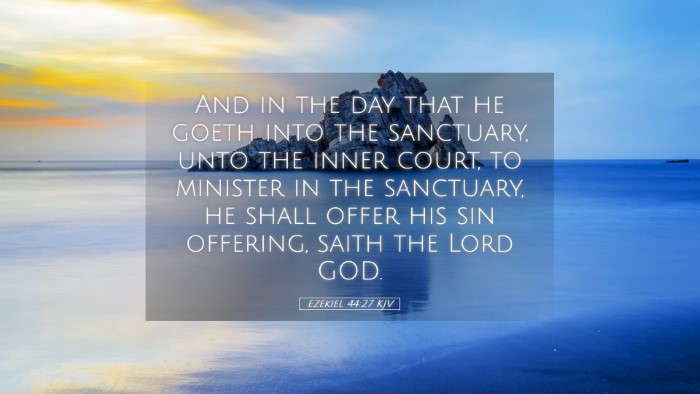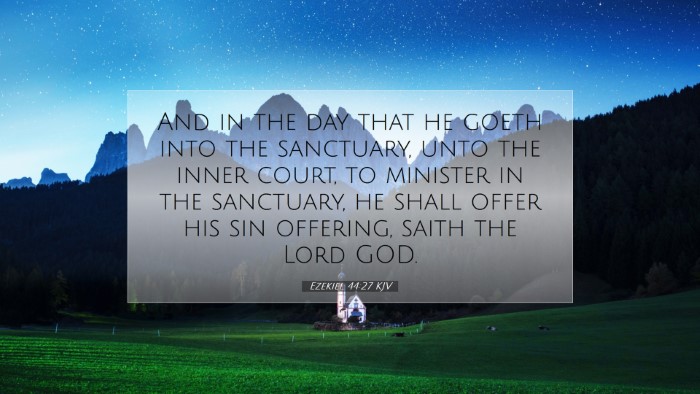Bible Commentary on Ezekiel 44:27
Ezekiel 44:27 states: "And on the day that he goeth into the sanctuary, to minister in the sanctuary, he shall offer his sin offering, saith the Lord God." This verse addresses the ceremonial practices related to the priests, particularly emphasizing the necessity of atonement before ministering in the holy place. The interaction of sin, holiness, and the role of the priest is foundational in understanding the spiritual life and responsibilities of God’s chosen servants.
Overview of Context
Ezekiel, a prophet during the Babylonian exile, focuses extensively on the restoration of Israel and the centrality of the Temple in divine worship. Chapters 40-48 provide a visionary blueprint for a future temple and the reestablishment of proper worship practices. This passage falls within the larger context of the ordinances governing the Levitical priesthood and the temple's service and structure.
The Role of the Priest
In analyzing this verse, it is essential to understand the vital role of the priest in Israel's religious system. The priests served as mediators between God and the people, responsible for offering sacrifices and ensuring that worship was pure and acceptable to God. As Matthew Henry observes:
"The priests were to offer sacrifices, and most especially a sin offering, acknowledging their own unworthiness and the need for atonement."
Ritual Purity and Atonement
This verse highlights the necessity of atonement before engaging in sacred duties. Albert Barnes elaborates:
"The sin offering is an essential aspect of priestly service, denoting the need for purity and the acknowledgment of sin. This process maintains the holiness of the sanctuary and the integrity of the worship."
Understanding Sin Offerings
Sin offerings were meant to atone for errors and unintentional sins committed by the priest or the community. Adam Clarke points out:
"The sin offering signifies the ongoing need for purification. The priest must recognize his own limitations and engage in atonement to rightly represent the people before God."
The implication here is that the act of offering a sin offering is not merely a ritual but a profound acknowledgment of human imperfection and the necessity for divine grace.
Spiritual Implications for Today
The significance of this verse extends beyond the ancient Israelite context and offers vital insights for modern believers. Pastors and theologians can draw several lessons from Ezekiel 44:27:
- The Importance of Atonement: Spiritual leaders today must recognize their dependency on God’s grace and the reality of sin in their lives.
- Holiness in Service: Before ministering, leaders should engage in self-examination and prayer, emphasizing the need for personal holiness.
- Communal Responsibility: Just as priests acted on behalf of the people, modern leaders should intercede for their communities, recognizing collective accountability.
- Reverence in Worship: The act of worship requires preparation, underscoring the sacredness of the worship experience.
Conclusion
Ezekiel 44:27 serves as a poignant reminder of the importance of holiness in ministry and the necessity of a personal connection with God before engaging in acts of worship and service. Both Matthew Henry, Albert Barnes, and Adam Clarke affirm the ongoing relevance of these principles, which encourage careful preparation, humility before God, and a deep reliance on His grace.
As we reflect on this passage, let us aspire to embody the humility and reverence demonstrated by the priests in ancient Israel, seeking to honor God through our lives and ministries.


